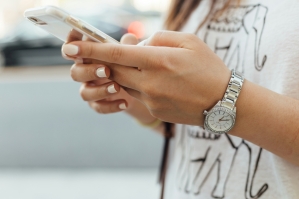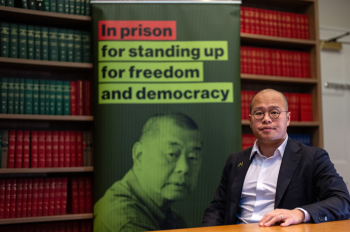Brazilian President Luiz Inácio Lula da Silva signed a bill on Monday, Jan. 13, restricting smartphone use in schools, aligning with a global movement to limit devices in educational settings.

The law, set to take effect in February, will apply to elementary and high school students across the nation, according to media reports. It establishes a legal framework ensuring that smartphones are used only in emergencies, for educational purposes, or by students with disabilities who require them.
Brazil’s Education Minister, Camilo Santana, highlighted the growing challenge of monitoring children’s online activities as they access the internet at increasingly younger ages. “We want those devices, as in many other countries, to only be used in class for pedagogical purposes and with a teacher’s guidance,” Santana said during a press conference in the capital, Brasília.
The bill received rare bipartisan support, with backing from both allies of leftist President Lula and supporters of his far-right predecessor, Jair Bolsonaro.
A majority of parents and students also favor the restrictions. A survey conducted in October by Brazilian pollster Datafolha found that nearly two-thirds of respondents supported banning smartphone use by children and teenagers in schools. Over three-quarters of respondents believed smartphones caused more harm than good to their children.
As of 2023, approximately two-thirds of Brazilian schools imposed some form of restriction on cellphone use, while 28% completely banned the devices, according to an August survey by the Brazilian Internet Steering Committee. Some states, including Rio de Janeiro, Maranhão, and Goiás, have already enacted local bans, though enforcement has been challenging. In São Paulo, Brazil's most populous state, authorities are deliberating whether to implement similar restrictions in both public and private schools.
The global debate around smartphone use by children is driven by concerns about bullying, anxiety, suicidal ideation, and reduced concentration necessary for learning. Countries like China and France have already implemented bans or limitations in schools. In the United States, eight states have enacted policies to restrict or ban smartphone use in classrooms, with growing parental support in Europe as well.
In 2023, UNESCO, the United Nations Educational, Scientific and Cultural Organization, has called for restrictions on smartphone use in schools and noted that “almost one in four countries [introduced] bans on smartphones use in schools in laws or policies from Côte d’Ivoire to Colombia, from Italy to the Netherlands.”
The issue has also drawn attention from major tech companies. In a 2024 U.S. Senate hearing, Meta CEO Mark Zuckerberg apologized to parents of children who had been exploited, bullied, or harmed through social media. He pledged continued investments in “industrywide” efforts to protect children.
As Brazil joins the global push to limit smartphone use in schools, policymakers hope the new measures will enhance the learning environment and promote healthier social interactions among students.






